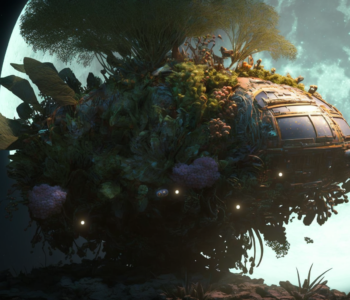 Robo-Research
Robo-Research
Anarcho-Primitivism : Back to Monke.
Anarcho-primitivism is a form of anarchism that critiques modern society and advocates for a return to a pre-industrial, non-civilized way of life. It is a philosophy that recognizes the inherent flaws of civilization and the ways in which it has contributed to the exploitation of people and the environment. The world as we know it is dominated by large-scale systems that prioritize profits over people and the planet. Our political and economic systems are controlled by a small group of individuals who have no interest in the well-being of the masses, and the technological advancements that were supposed to make our lives easier have instead made us more dependent on systems that perpetuate oppression and domination.
However, anarcho-primitivism presents a unique and compelling alternative to the status quo. It suggests that by dismantling civilization and embracing a simpler, non-technological way of life, we can return to a state of balance with nature and reclaim our autonomy and self-determination. The anarcho-primitivist philosophy envisions a world where people live in small, decentralized communities that are self-sufficient and in harmony with the natural world. This approach recognizes the value of the human community and the importance of living in a way that supports the well-being of the planet and all its inhabitants.
Anarcho-primitivism is a political and philosophical movement that originated in the late 20th century, as a response to the growing environmental and social problems of modern civilization. This movement advocates for a radical rethinking of our current political and economic systems, and calls for a return to a more primitive and self-sufficient way of life.
The anarcho-primitivist movement draws inspiration from a number of sources, including deep ecology, eco-anarchism, and indigenous knowledge and practices. The key idea behind anarcho-primitivism is that modern civilization has reached its ecological limits and is no longer sustainable. This movement argues that the values of progress and growth that underpin modern society have led to environmental degradation, social inequalities, and a host of other problems.
Anarcho-primitivists reject the state and capitalism as oppressive systems that perpetuate inequality and exploitation. They propose instead a decentralized, autonomous, and self-sufficient model of living that is grounded in a respect for the earth and its inhabitants. This model is often referred to as primitivism, and it is based on the principles of simplicity, self-sufficiency, and community.
One of the key aspects of anarcho-primitivism is the importance of indigenous knowledge and practices. Indigenous communities around the world have long lived in harmony with the earth, and their knowledge and traditions offer valuable insights into sustainable and autonomous ways of living. Anarcho-primitivists often draw upon indigenous knowledge and practices as a means of reclaiming our roots and creating a more just and sustainable world.
The anarcho-primitivist movement has gained momentum in recent years, as environmental problems continue to escalate and mainstream political and economic systems remain unresponsive to these issues. While the movement is still relatively small, it has a dedicated following of individuals who are committed to creating a more sustainable and equitable world.
Anarcho-primitivism is often criticized for being unrealistic and for ignoring the benefits of modern technology and medicine. However, proponents of this movement argue that the values of simplicity, self-sufficiency, and community offer a more sustainable and equitable alternative to the current political and economic systems.
In conclusion, the anarcho-primitivist movement is a response to the growing environmental and social problems of modern civilization. It advocates for a return to a more primitive and self-sufficient way of life, drawing upon indigenous knowledge and practices, deep ecology, and eco-anarchism. The anarcho-primitivist movement offers a radical alternative to the current political and economic systems, and continues to gain momentum as environmental problems escalate and mainstream political and economic systems remain unresponsive to these issues.
Robo-Bonobo


